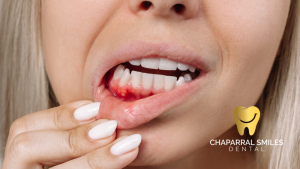Tooth sensitivity is a common issue that affects people of all ages, but it is particularly prevalent among seniors. As we age, our teeth and gums undergo changes that can make them more susceptible to sensitivity. This can have a significant impact on the quality of life for seniors, as it can make eating, drinking, and even brushing their teeth a painful experience. In this article, we will explore the common causes of tooth sensitivity in seniors, the impact of aging on tooth sensitivity, and how seniors can manage and treat this issue to improve their oral health and overall well-being.
Tooth sensitivity occurs when the enamel on the outer layer of the tooth or the cementum on the root becomes worn down, exposing the dentin underneath. This dentin contains tiny tubules that lead to the nerve endings of the tooth, and when these tubules are exposed, it can lead to pain and discomfort when the tooth comes into contact with hot, cold, sweet, or acidic foods and drinks. Seniors may also experience tooth sensitivity as a result of receding gums, which can expose the roots of the teeth and make them more vulnerable to sensitivity. It is important for seniors to understand the causes of tooth sensitivity so that they can take steps to manage and treat this issue effectively.
Key Takeaways
- Tooth sensitivity is a common issue for seniors and can have a significant impact on their quality of life.
- Common causes of tooth sensitivity in seniors include gum recession, enamel erosion, and dental conditions such as cavities and cracked teeth.
- Aging can exacerbate tooth sensitivity due to changes in the oral tissues and increased likelihood of dental issues.
- Managing and treating tooth sensitivity in seniors may involve using desensitizing toothpaste, avoiding acidic foods and drinks, and addressing underlying dental problems.
- Seniors can prevent and alleviate tooth sensitivity by practicing good oral hygiene, using a soft-bristled toothbrush, and seeking regular dental check-ups to address any issues early on.
Common Causes of Tooth Sensitivity in Seniors
There are several common causes of tooth sensitivity in seniors, many of which are related to the natural aging process. One of the primary causes is enamel erosion, which can occur as a result of years of wear and tear on the teeth. This can be exacerbated by factors such as acidic foods and drinks, aggressive brushing, and certain medical conditions that can lead to acid reflux or vomiting. As the enamel wears down, it can expose the dentin underneath and make the teeth more susceptible to sensitivity.
Another common cause of tooth sensitivity in seniors is receding gums. As we age, our gums can naturally recede, exposing the roots of the teeth and making them more vulnerable to sensitivity. This can be exacerbated by factors such as gum disease, poor oral hygiene, and smoking. Additionally, seniors may also experience tooth sensitivity as a result of dental procedures such as teeth whitening or dental restorations, which can temporarily increase sensitivity. It is important for seniors to be aware of these common causes of tooth sensitivity so that they can take steps to prevent and alleviate this issue.
Understanding the Impact of Aging on Tooth Sensitivity
The aging process can have a significant impact on tooth sensitivity for seniors. As we age, our teeth naturally undergo changes that can make them more susceptible to sensitivity. One of the primary factors is the natural wear and tear on the teeth that occurs over time. This can lead to enamel erosion, which can expose the dentin underneath and make the teeth more vulnerable to sensitivity. Additionally, as we age, our gums can naturally recede, exposing the roots of the teeth and making them more susceptible to sensitivity.
In addition to these natural changes, seniors may also be more prone to certain medical conditions that can contribute to tooth sensitivity. For example, conditions such as acid reflux or vomiting can lead to enamel erosion, while conditions such as diabetes or cardiovascular disease can increase the risk of gum disease and receding gums. Furthermore, medications commonly taken by seniors, such as those for high blood pressure or osteoporosis, can have side effects that contribute to tooth sensitivity. It is important for seniors to understand the impact of aging on tooth sensitivity so that they can take proactive steps to manage and treat this issue effectively.
Managing and Treating Tooth Sensitivity in Seniors
There are several strategies that seniors can use to manage and treat tooth sensitivity effectively. One of the first steps is to practice good oral hygiene, including brushing with a soft-bristled toothbrush and using a desensitizing toothpaste. These toothpastes contain compounds that help to block the transmission of sensation from the tooth surface to the nerve, providing relief from sensitivity. Additionally, seniors should be mindful of their diet and avoid acidic foods and drinks that can contribute to enamel erosion.
In some cases, dental procedures such as fluoride treatments or dental bonding may be recommended to help alleviate tooth sensitivity. Fluoride treatments can help to strengthen the enamel and reduce sensitivity, while dental bonding can be used to cover exposed dentin and provide protection for the teeth. Seniors should also be proactive about addressing any underlying dental issues that may be contributing to their sensitivity, such as gum disease or cavities. By working closely with their dentist, seniors can develop a personalized treatment plan to effectively manage their tooth sensitivity and improve their oral health.
Tips for Seniors to Prevent and Alleviate Tooth Sensitivity
In addition to managing and treating tooth sensitivity, there are several tips that seniors can follow to prevent and alleviate this issue. One important tip is to avoid aggressive brushing, as this can contribute to enamel erosion and make the teeth more susceptible to sensitivity. Seniors should also be mindful of their diet and avoid acidic foods and drinks that can contribute to enamel erosion. Additionally, using a soft-bristled toothbrush and practicing good oral hygiene can help to prevent further wear on the teeth and reduce sensitivity.
Seniors should also be proactive about addressing any underlying dental issues that may be contributing to their sensitivity, such as gum disease or cavities. By addressing these issues early on, seniors can prevent further damage to their teeth and reduce their risk of sensitivity. Finally, regular dental check-ups are essential for seniors to monitor their oral health and address any issues before they become more serious. By following these tips, seniors can take control of their oral health and prevent and alleviate tooth sensitivity effectively.
The Importance of Regular Dental Check-ups for Seniors

Regular dental check-ups are essential for seniors to monitor their oral health and address any issues before they become more serious. During these check-ups, dentists can assess the overall health of the teeth and gums, identify any signs of enamel erosion or gum recession, and address any underlying dental issues that may be contributing to tooth sensitivity. Additionally, regular cleanings can help to remove plaque and tartar buildup that can contribute to gum disease and sensitivity.
Furthermore, regular dental check-ups provide an opportunity for dentists to educate seniors about good oral hygiene practices and provide personalized recommendations for managing and treating tooth sensitivity. By working closely with their dentist, seniors can develop a proactive approach to their oral health and take steps to prevent and alleviate tooth sensitivity effectively. Regular dental check-ups are an essential part of maintaining good oral health for seniors and can have a significant impact on their overall well-being.
Empowering Seniors to Take Control of Their Oral Health
In conclusion, tooth sensitivity is a common issue that affects many seniors, but it is not something that they have to endure in silence. By understanding the common causes of tooth sensitivity in seniors, the impact of aging on this issue, and how to manage and treat it effectively, seniors can take control of their oral health and improve their overall well-being. By following good oral hygiene practices, being mindful of their diet, addressing underlying dental issues, and attending regular dental check-ups, seniors can prevent and alleviate tooth sensitivity effectively. It is important for seniors to be proactive about their oral health and work closely with their dentist to develop a personalized approach to managing their tooth sensitivity. With the right knowledge and support, seniors can empower themselves to take control of their oral health and enjoy a comfortable and pain-free smile for years to come.
If you’re interested in learning more about dental care for seniors, be sure to check out the blog section of Chaparral Smiles Dental. They have a great article on “5 Things You Need to Know About Composite Bonding” that provides valuable information on this common dental procedure. https://www.chaparralsmilesdental.com/5-things-you-need-to-know-about-composite-bonding/ This article can help you understand how composite bonding can be used to address tooth sensitivity and other dental issues in seniors.





